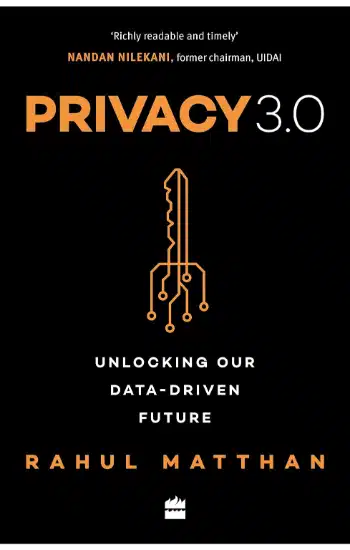
Save: 10%

Save: 25%
Privacy 3.0: Unlocking Our Data-Driven Future
Publisher:
| Author:
| Language:
| Format:
Publisher:
Author:
Language:
Format:
₹499 ₹349
Save: 30%
In stock
Ships within:
In stock
| Book Type |
|---|
ISBN:
Page Extent:
Our personal space is dear to us all. We live our lives in full public view on social media – posting photos of the food we just ate or even expressing intimate feelings for our loved ones – but there are still things we would rather not share with the world. Indeed, it is privacy that sets man apart from the animals who must stick together in the wild for their own safety. But mankind was not born private. Our primitive ancestors too lived in large groups, every member of which knew all there was to know about the others. Privacy evolved over time as man developed technologies to wall himself off, even as he remained part of the society at large. But just as some technologies enhanced privacy, others – such as the printing press or the portable camera – chipped away at it. Every time this happened, man opposed the technology at first but made his peace with it eventually to benefit from the obvious good it could do. We are at a similar crossroads today with data technologies. Aadhaar is one example of the many ways in which we have begun to use data in everything we do. While it has made it far easier to avail of services from the government and private enterprises than ever before, there are those who rightly worry about people’s private data being put to ill use – and, worse, without consent. But this anxiety is no different from that which we felt during the teething troubles of every previous technology we adopted. What we really need is a new framework that unlocks the full potential of a data-driven future while still safeguarding what we hold most dear – our privacy. In this pioneering work, technology lawyer Rahul Matthan traces the changing notions of privacy from the earliest times to its evolution through landmark cases in the UK, US and India. In the process, he re-imagines the way we should be thinking about privacy today if we are to take full advantage of modern data technologies, cautioning against getting so obsessed with their potential harms that we design our laws to prevent us from benefiting from them at all.
Our personal space is dear to us all. We live our lives in full public view on social media – posting photos of the food we just ate or even expressing intimate feelings for our loved ones – but there are still things we would rather not share with the world. Indeed, it is privacy that sets man apart from the animals who must stick together in the wild for their own safety. But mankind was not born private. Our primitive ancestors too lived in large groups, every member of which knew all there was to know about the others. Privacy evolved over time as man developed technologies to wall himself off, even as he remained part of the society at large. But just as some technologies enhanced privacy, others – such as the printing press or the portable camera – chipped away at it. Every time this happened, man opposed the technology at first but made his peace with it eventually to benefit from the obvious good it could do. We are at a similar crossroads today with data technologies. Aadhaar is one example of the many ways in which we have begun to use data in everything we do. While it has made it far easier to avail of services from the government and private enterprises than ever before, there are those who rightly worry about people’s private data being put to ill use – and, worse, without consent. But this anxiety is no different from that which we felt during the teething troubles of every previous technology we adopted. What we really need is a new framework that unlocks the full potential of a data-driven future while still safeguarding what we hold most dear – our privacy. In this pioneering work, technology lawyer Rahul Matthan traces the changing notions of privacy from the earliest times to its evolution through landmark cases in the UK, US and India. In the process, he re-imagines the way we should be thinking about privacy today if we are to take full advantage of modern data technologies, cautioning against getting so obsessed with their potential harms that we design our laws to prevent us from benefiting from them at all.
About Author
Reviews
There are no reviews yet.



Reviews
There are no reviews yet.